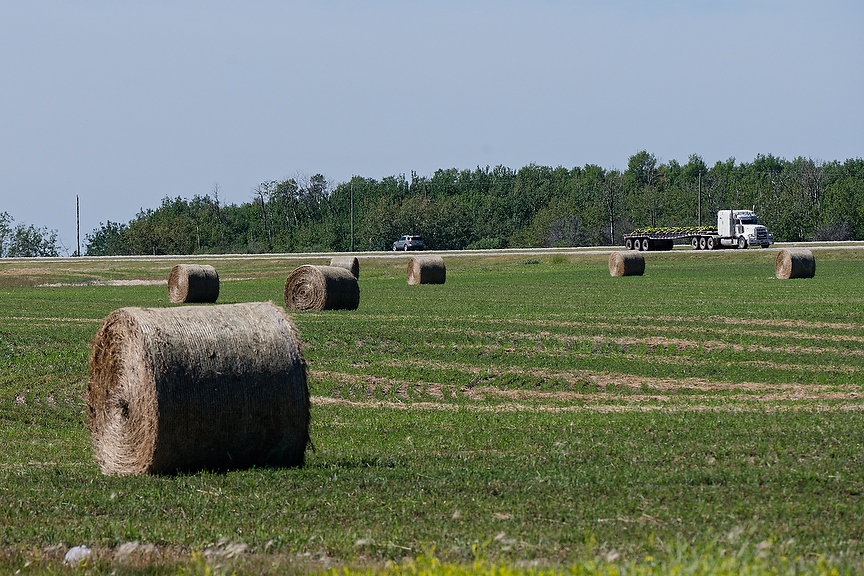
Recent rainfall is too little, too late for most cattle producers in the Grande Prairie region.
The County of Grande Prairie and the MD of Greenview have both declared a state of agricultural disaster due to drought conditions.
“We're just hoping and praying,” said Anna Friesen, who owns Friesen Angus Farms with her husband Chad south of Grande Prairie.
She hopes the recent rainfall will help green up pastures, and late-seeded feed will begin to grow.
Pastures for their 170 pairs are “brown and crispy,” unlike anything the family-run farm has ever seen in the past.
“Then on top of it, the grasshoppers are just unbelievable; I've never seen so many grasshoppers.”
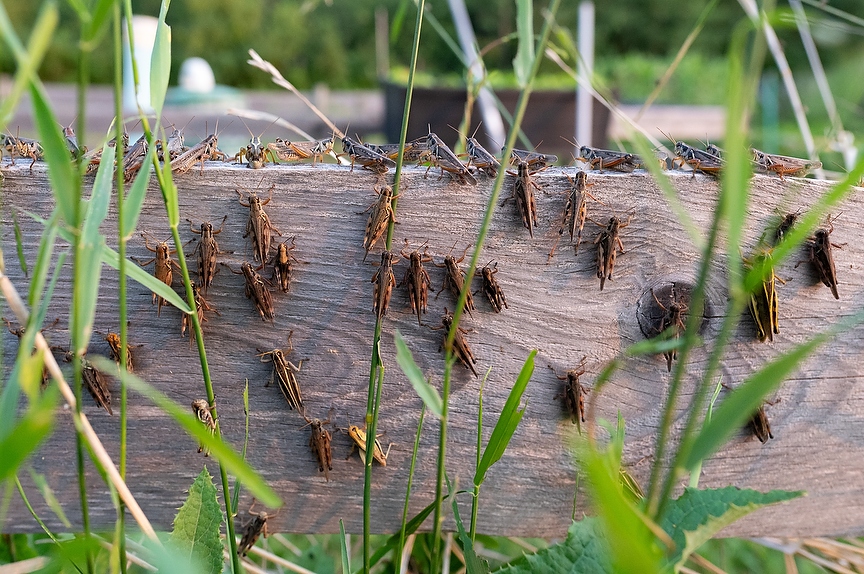
The MD of Greenview declared an agricultural disaster for the livestock industry on July 8; the County of Grande Prairie followed on July 18.
“It’s important that we present the seriousness of the situation to the provincial and federal governments to help ensure our producers receive the necessary support they require,” said County Reeve Bob Marshall.
“Extended dry weather and drought conditions over the past two growing seasons have significantly impacted local agricultural businesses.”
The county previously declared an agricultural disaster in 2024 due to poor crop yields due to drought.
This year, the county and the MD are both raising concerns as they report worsening drought conditions with grasshoppers creating pressure and stress on crops resulting in reduced hay harvests, poor pasture conditions, and lower-than-expected yields and quality across the region.
Friesen said this year they received a quarter bale per acre and spent over $50,000 on feed.
“This year we thought it couldn't get any worse, but we don't even have hay to cut on a whole bunch of our fields,” she said.
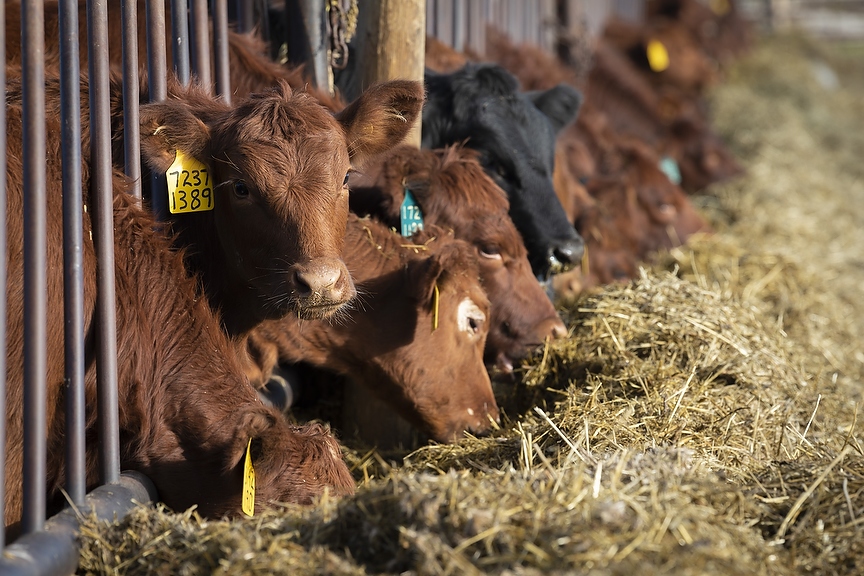
Drought unlike any other
“I've never seen conditions like this in my whole life,” she said, noting that she grew up in the cattle business with her father having a small farm in Goodfare near their current pasture.
The MD said in a press release that producers are tilling land with the hope of producing feed in the latter half of the season, while others are considering liquidation and approaching auction markets for early openings.
Liquidation is something that Friesen wants to avoid.
She said even though cattle prices may currently be strong, the problem arises if the market becomes flooded by producers dispersing their herds due to lack of affordable feed.
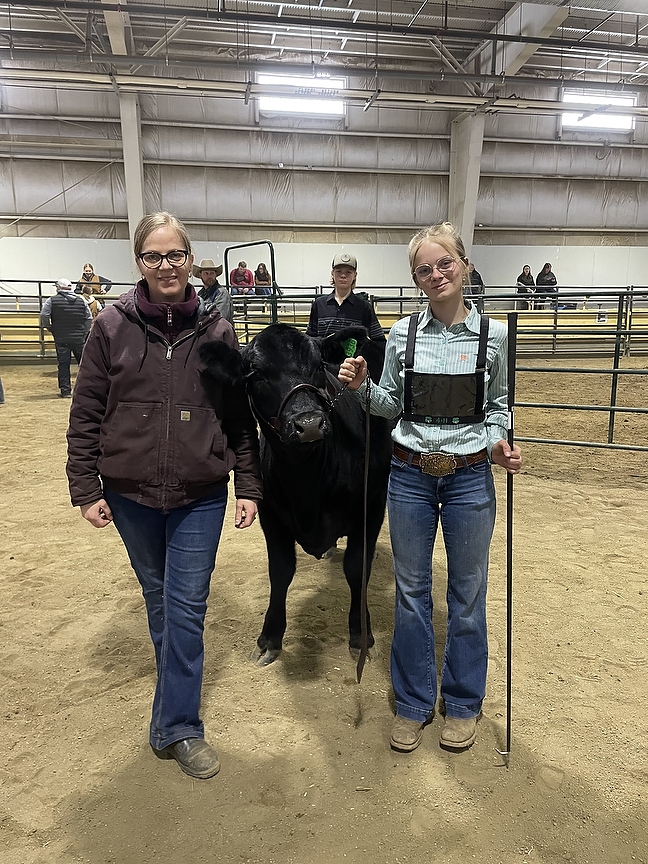
“Our national cow herd size keeps reducing and reducing, and that's one of the things that has pushed up prices, but if we just have another massive sell-off, we're not going to be able to sustain the demand for beef in Canada.”
“By declaring an agricultural disaster, Greenview is formally recognizing the severe challenges our farmers and ranchers are facing,” said MD of Greenview Reeve Tyler Olsen.
“We urge all levels of government and the public to understand the gravity of the situation and to support the agricultural community through this difficult time.”
He is also urging the Minister of Agriculture and Irrigation RJ Sigurdson to include Greenview in the regions eligible for the federal Livestock Tax Deferral program.
The program allows farmers who sell all or part of their breeding herd due to drought or excess moisture to defer a portion of sale proceeds to the following year.
Friesen noted that producers need money for hay sooner rather than later.
“We have hay and pasture insurance, but we don't usually get the payouts until well into the winter, so usually end of December, beginning of January, and by that time, how do you secure hay? It's already all gone.”
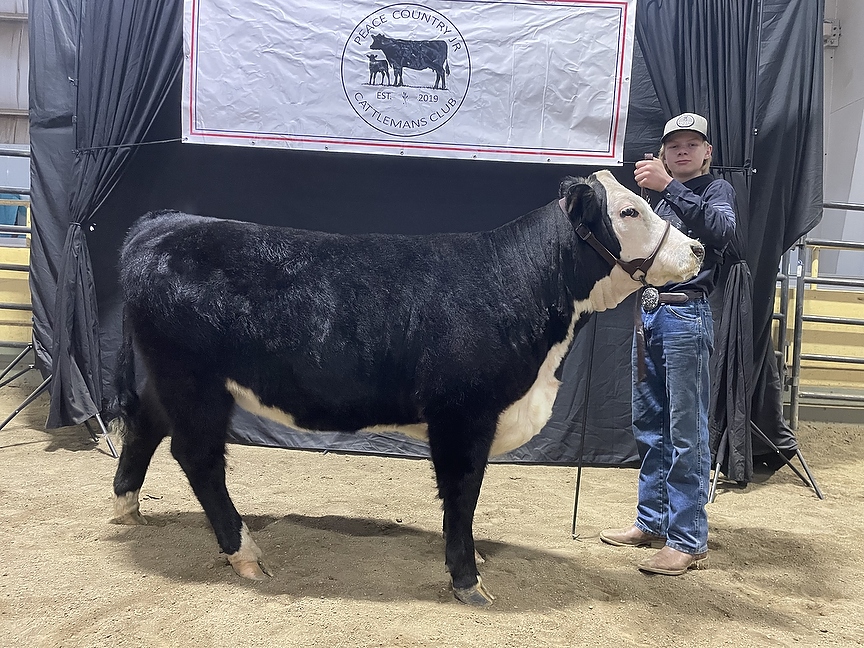
Future of cattle farming at risk
Friesen wonders about the future of cattle farms in Canada.
“Kids don't want to take over the family farm because it's so much work, but now these drought situations are just compounding it, because this is going on four years of fairly severe drought, and this is the worst year yet, which we thought couldn't get any worse, so how do you keep going?”
She noted that her 14-year-old son has expressed interest in taking over the farm one day, but also realizes he will need to take training in another field, such as the trades, to ensure he can afford it.
“We're not getting the support that we need, and it's going to start to affect people quite significantly as the national cattle herd continues to reduce, and there's no one who wants to do it or has been forced out of it because of drought conditions and no support from the government.”
In the letter to Sigurdson, Olsen says, “council is increasingly concerned about the mental health impacts on producers as they navigate difficult decisions regarding their operations.”
Olsen notes in his letter that though the July 4 Provincial Crop Report stated no pests are exceeding threshold levels, both Greenview producers and municipal staff have reported significant grasshopper amounts.
The July 15 Alberta Crop Report says North East and North West Alberta crops have signs of heat stress, “raising concerns about reduced yields and highlighting the need for additional rainfall to support potential crop yields and encourage pasture growth.”
The crop report says the Peace region’s first hay cut is about 76 per cent complete, with yields averaging 1.2 tonnes per acre.
The report also notes that grasshopper populations are reported above threshold levels at three per cent.
In the letter, Olsen says, “annual crop failure has not occurred and Greenview is not declaring a disaster for annual cropping at this time.”
Still, he notes that many producers are expecting below-average outcomes.
PARDS looks for hay donations
The Peace Area Riding for the Disabled Society (PARDS) posted on social media on Monday that it was seeking donations of hay to feed its herd of horses.
“We are urgently seeking horse-quality round bales to feed the horses who make our programs possible,” it said in a social media post.
“With unpredictable weather, rising costs, and hay shortages across the region, securing enough feed for the coming months has become a serious concern.”
PARDS is seeking donations of horse-quality round bales for sale or funds to support the purchase of bales.